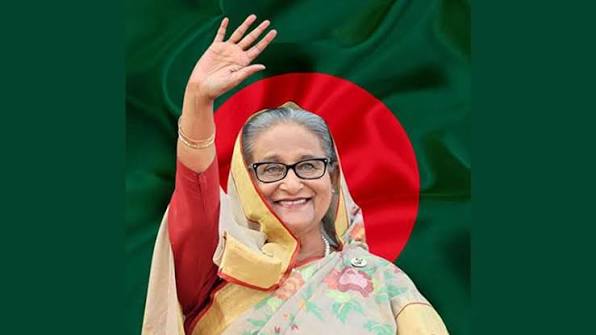SHREYA SINGH KASANA
What is unfolding in Bangladesh today feels like a rupture few could have foreseen: a former Prime Minister sentenced to death, an interim government struggling for legitimacy, and a society shaken by ideological fractures, foreign influence, and resurgent extremism. A country once celebrated as a development success story now appears suspended between past traumas and future uncertainties. Yet this crisis is no longer Bangladesh’s alone. It has crossed the border and placed India at the centre of a diplomatic, ethical, and strategic storm.
Sheikh Hasina is in India, and Bangladesh wants her back. New Delhi now finds itself forced to choose between loyalty to a long-standing ally and the realities of an unpredictable regime next door. This is not merely a dispute over extradition; it is a defining moment for South Asia’s political trajectory.

Bangladesh’s political order did not collapse overnight. Tensions had been simmering for years over governance, economic pressures, and accusations of authoritarian excess. Still, the speed with which the state structure weakened surprised even those who anticipated unrest. Key ministries hesitated. Administrative orders faced pushback. Segments of the security apparatus, once firmly aligned with Hasina, began to step back. The country’s trajectory shifted not through dramatic confrontation but through this quiet erosion of institutional loyalty. The machinery that had supported the Awami League for fifteen years loosened, creating a vacuum into which opportunistic political actors quickly moved. What followed was not just a governmental transition but a dramatic rewriting of political alignments in Dhaka.
The current crisis cannot be understood without examining the broader geopolitical currents surrounding Bangladesh. Washington’s discomfort with Hasina’s growing proximity to Beijing had long been visible. But the point of rupture, many analysts argue, was her refusal to grant the United States strategic access to St. Martin’s Island—a tiny coral outpost with disproportionate importance for Indo-Pacific security. Control of the island offers oversight of India’s eastern seaboard, Myanmar’s naval theatre, and shipping lanes feeding the Malacca Strait. Hasina’s refusal to concede this ground was firm and public. The US response to the new interim government was notably swift—rapid recognition and a sudden warmth that had been absent in recent years. American officials deny any involvement in hastening Bangladesh’s power shift. But in a country deeply shaped by Cold War-era manoeuvring and regional proxy dynamics, such denials have only deepened public suspicion.







